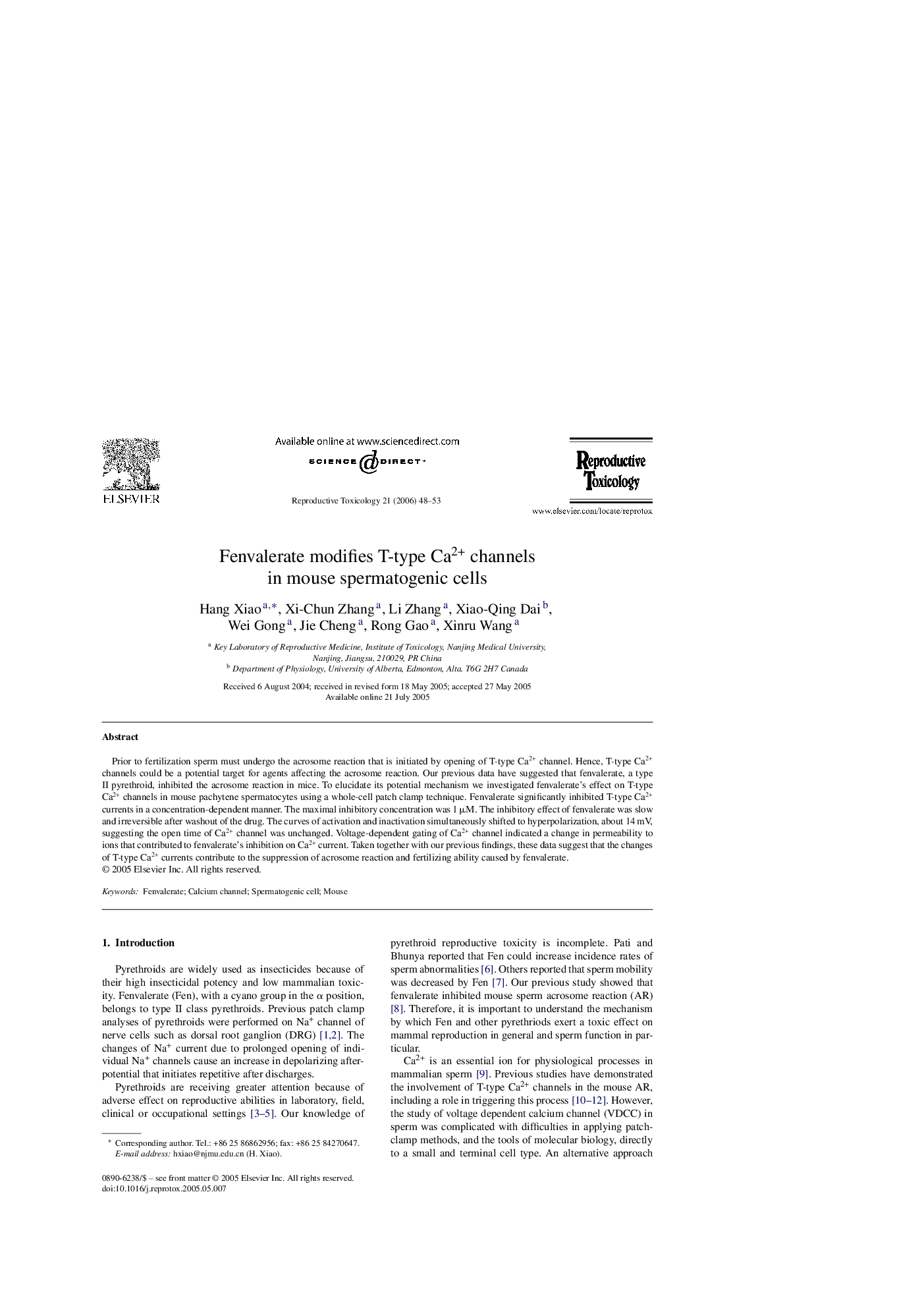| Article ID | Journal | Published Year | Pages | File Type |
|---|---|---|---|---|
| 2595204 | Reproductive Toxicology | 2006 | 6 Pages |
Prior to fertilization sperm must undergo the acrosome reaction that is initiated by opening of T-type Ca2+ channel. Hence, T-type Ca2+ channels could be a potential target for agents affecting the acrosome reaction. Our previous data have suggested that fenvalerate, a type II pyrethroid, inhibited the acrosome reaction in mice. To elucidate its potential mechanism we investigated fenvalerate's effect on T-type Ca2+ channels in mouse pachytene spermatocytes using a whole-cell patch clamp technique. Fenvalerate significantly inhibited T-type Ca2+ currents in a concentration-dependent manner. The maximal inhibitory concentration was 1 μM. The inhibitory effect of fenvalerate was slow and irreversible after washout of the drug. The curves of activation and inactivation simultaneously shifted to hyperpolarization, about 14 mV, suggesting the open time of Ca2+ channel was unchanged. Voltage-dependent gating of Ca2+ channel indicated a change in permeability to ions that contributed to fenvalerate's inhibition on Ca2+ current. Taken together with our previous findings, these data suggest that the changes of T-type Ca2+ currents contribute to the suppression of acrosome reaction and fertilizing ability caused by fenvalerate.
